
Any variegated plant creates an extra splash of color and drama, and variegated conifers are no exception. Although once thought of as appearing sickly or diseased, variegated conifers are steadily gaining traction in home gardens. They make excellent focal points, contributing year-round color, texture, and structure. As a bonus, they usually grow more slowly than the straight species, making them more compact and easier to control.
Learn more: Colorful Conifers for Year-Round Interest
Variegated plants lack chlorophyll in some cells, resulting in white, cream, yellow, or light green coloration that creates a multicolored effect on leaves or needles. Variegated conifers are reproduced through grafting or rooted cuttings. Nearly every genus of conifer has a variegated cultivar; some are coveted collectors’ items, but there are many great varieties that are easier to find at nurseries or via mail order. Following are a few of my favorites.
‘Gelbbunt’ Korean fir offers a shining mix of gold and silver
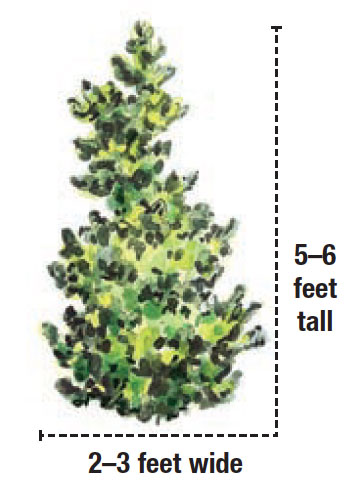
Name: Abies koreana ‘Gelbbunt’
Zones: 4–8
Size: 5 to 6 feet tall and 2 to 3 feet wide in 10 years
Conditions: Full sun to partial shade; rich, consistently moist, well-drained soil
Native range: Korea
‘Gelbbunt’ is slow growing and irregularly shaped, with generous amounts of yellow variegation randomly mixed into its medium green foliage with silver undersides. As a colorful bonus, it periodically produces indigo-colored cones. Use it as an interesting stand-alone specimen, or combine it with hot colors in the perennial bed. It appreciates being grown out of direct sunlight, or at least protected from hot afternoon sun. Expect a growth rate of approximately 4 to 6 inches per year.
‘Niemetz’ Colorado spruce steals the show in spring

Name: Picea pungens ‘Niemetz’
Zones: 3–8
Size: 8 feet tall and 3 feet wide in 10 years
Conditions: Full sun; well-drained soil
Native range: Central Rocky Mountains
True variegated forms of Colorado spruce are available, but they are extremely hard to find and have a tendency to revert back to their original color. There are some excellent cultivars, however, that provide great spring color before changing back to their usual blue or green. Semi-dwarf ‘Niemetz’—with unbelievable white new growth that changes to powdery blue by midsummer—is one of my favorites. Slower growing than the species and often irregular in shape, it makes a stunning specimen.
‘Albospica’ Eastern hemlock has highlights that last all year
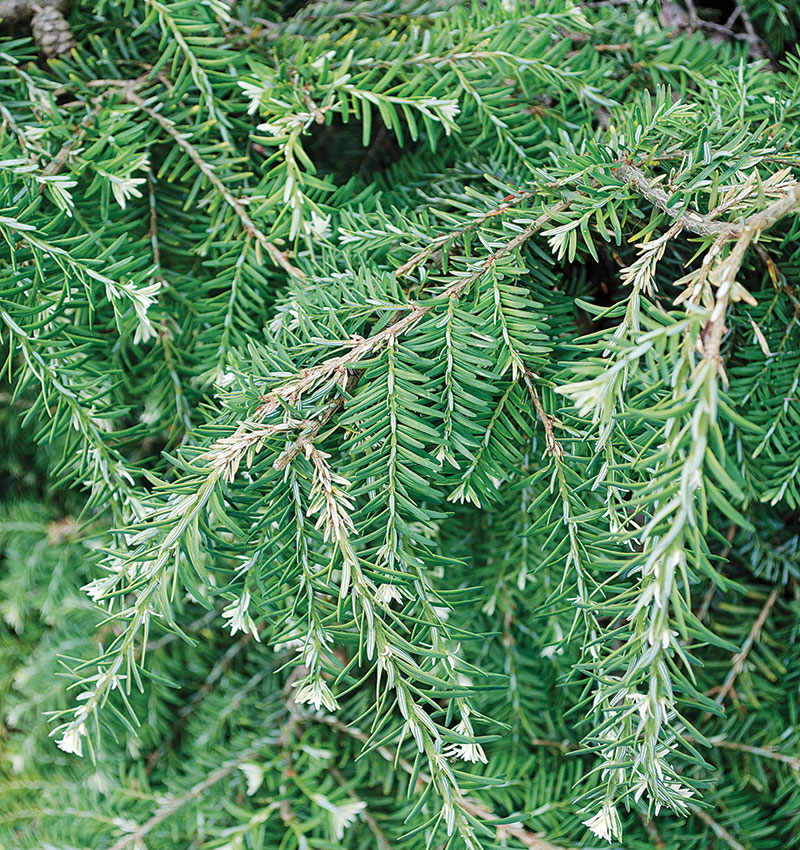
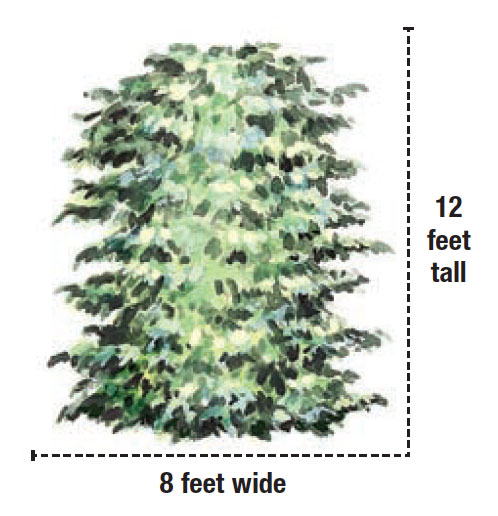
Name: Tsuga canadensis ‘Albospica’
Zones: 4–7
Size: 12 feet tall and 8 feet wide in 10 years
Conditions: Partial shade; consistently moist, well-drained soil
Native range: Eastern North America
Pure white waterfall-like new growth cascading across dark green needles from previous seasons makes for dramatic contrast. Although ‘Albospica’ can grow in full sun, its bright new growth seems to last longer when it is planted in light shade or in a spot with morning sun and afternoon shade. Even in winter, the white frosted tips will remain. Although it generally has a globelike habit, eventually it will make a leader, which is easy to prune out if necessary.
‘Sparkling Arrow’ Alaskan yellow cedar is an eye-catching vertical accent

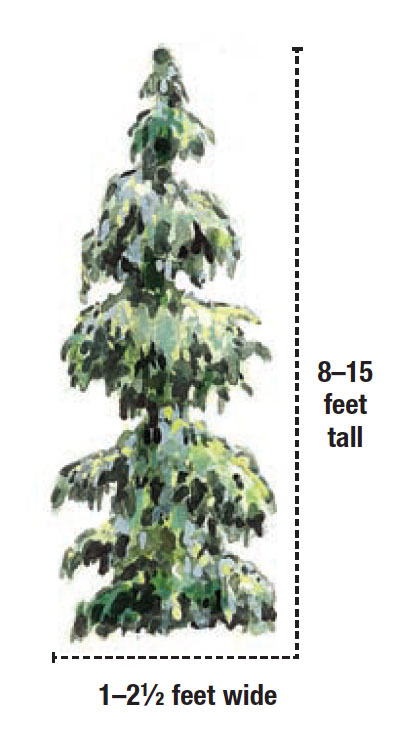
Name: Cupressus nootkatensis ‘Sparkling Arrow’
Zones: 5–8
Size: 8 to 15 feet tall and 1 to 2½ feet wide in 10 years
Conditions: Full sun to partial shade; well-drained soil
Native range: Northwestern coast of North America
This sport of ‘Green Arrow’ is a definite conversation piece. It has a narrow, vertical habit with dramatic, weeping branches and foliage. The nearly white variegation has a beautiful sparkling effect, but it can burn in winter when the tree is young, especially in northern gardens. As it gets older, it appears to outgrow this potential problem. It grows more slowly than ‘Green Arrow’, gaining between 6 and 12 inches per year.
‘Dream Joy’ juniper’s new growth stays bright from spring through fall
Name: Juniperus squamata ‘Dream Joy’
Zones: 4–8
Size: 2 feet tall and 4 feet wide in 10 years
Conditions: Full sun to partial shade; well-drained soil
Native range: China and the Himalayas
This shrub has seasonal variegation with staying power. In spring, pale new growth shines against gray-green older foliage, and these contrasting colors stay strong throughout the growing season. Over the course of winter, the tips tone down to match the rest of the plant until the next spring show begins. The plant grows 4 to 6 inches per year, spreading horizontally without gaining much height. A newer juniper cultivar with even more dramatic variegation, ‘Floreant’ (J. squamata ‘Floreant’, Zones 4–8) may be harder to find, but it is worth the search. It forms a compact, slow-growing, steely blue bun with lots of creamy yellow patches.
Snow in the Valley Japanese white pine is compact and showy

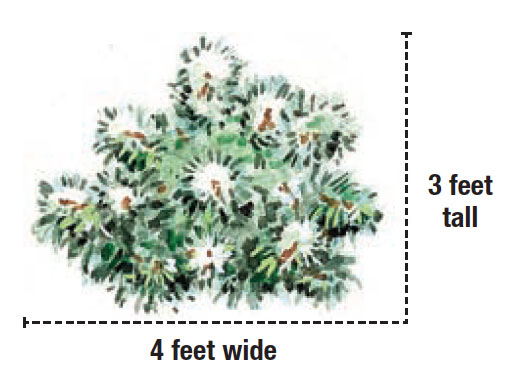
Name: Pinus parviflora ‘Tanima no yuki’
Zones: 4b–7
Size: 3 feet tall and 4 feet wide in 10 years
Conditions: Partial shade; fertile, well-drained soil
Native range: Japan and Korea
More colorful than many perennials, this dwarf Japanese white pine is happy to show off 365 days a year. In spring, pure white needles unfold from pink candles, later darkening to green at the base with white frosted tips. It has an attractive irregular mounding habit and grows only 3 to 4 inches per year, making it a good fit for smaller spaces.
‘Sunshine’ mugo pine shines in the late season

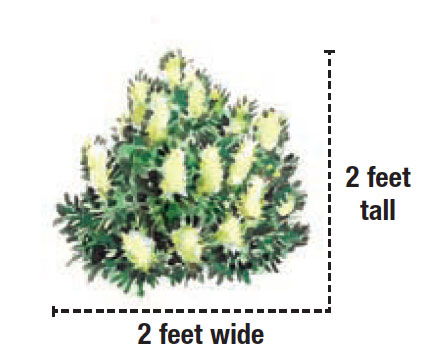
Name: Pinus mugo ‘Sunshine’
Zones: 3–7
Size: 2 feet tall and wide in 10 years
Conditions: Full sun; well-drained soil
Native range: Mountains of Central and Southern Europe
Finally, a dragon’s eye mugo pine! ‘Sunshine’ forms a tidy globe that grows about 3 inches per year and is unlikely to require any shaping. Its variegation is subdued early in the season, then in late summer the gold-banded rings form on its needles; these persist to provide interest throughout the winter months. Very hardy, it is even good in Zone 3.
‘Golden Candles’ Eastern white pine is a brighter version of an iconic native species
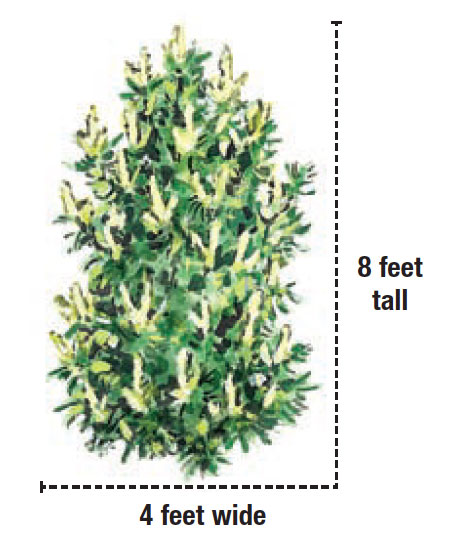
Name: Pinus strobus ‘Golden Candles’
Zones: 3–8
Size: 8 feet tall and 4 feet wide in 10 years
Conditions: Full sun; well-drained soil
Native range: Northeastern North America
‘Golden Candles’ is surely one of the most aesthetically pleasing golden pines in recent memory. New growth is lemon yellow, changing to medium green and leaving lots of gold frosting, especially on the ends of the new growth. Throughout the season the color evolves into gold, lime, and green. Even the bark is colorful when the tree is young, a pleasing combination of orange and green. This slow-growing cultivar will become a majestic tree with time. Expect it to grow about 12 inches per year once it is established.
‘Silver Seedling’ Oriental spruce is a shimmering standout
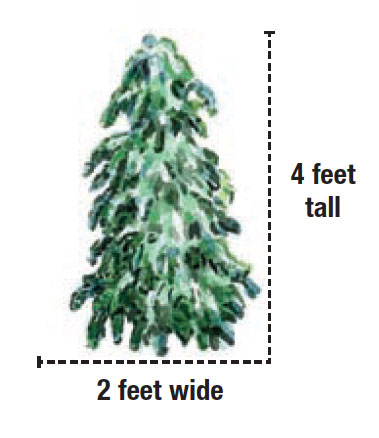
Name: Picea orientalis ‘Silver Seedling’
Zones: 5–7
Size: 4 feet tall and 2 feet wide in 10 years
Conditions: Full sun to partial shade; moist, well-drained soil
Native range: Southern Russia and northeastern Turkey
Few conifers give a consistent white cast over their needles like this selection. ‘Silver Seedling’ is slow growing and will eventually take a conical form. Although sometimes incorrectly referred to as ‘Sulphur Flush’, this beauty is worth seeking out even if it is mislabled. To protect it from burning, especially in northern climates, give it morning sun and afternoon shade.
Darren Heimbecker is the founder, designer, and head horticulturist at Whistling Gardens in Wilsonville, Ontario.
Photos, except where noted: Carol Collins
Illustrations: Elara Tanguy
Sources
- Broken Arrow Nursery, Hamden, CT; 203-288-1026; brokenarrownursery.com
- Conifer Kingdom, Silverton, OR; 503-874-4123; coniferkingdom.com
- Kigi Nursery, Kelso, WA; kiginursery.com
- Singing Tree Gardens Nursery, McKinleyville, CA; 707-839-8777; singtree.com
Fine Gardening Recommended Products
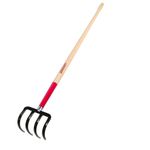
Razor-Back Potato/Refuse Hook
Fine Gardening receives a commission for items purchased through links on this site, including Amazon Associates and other affiliate advertising programs.
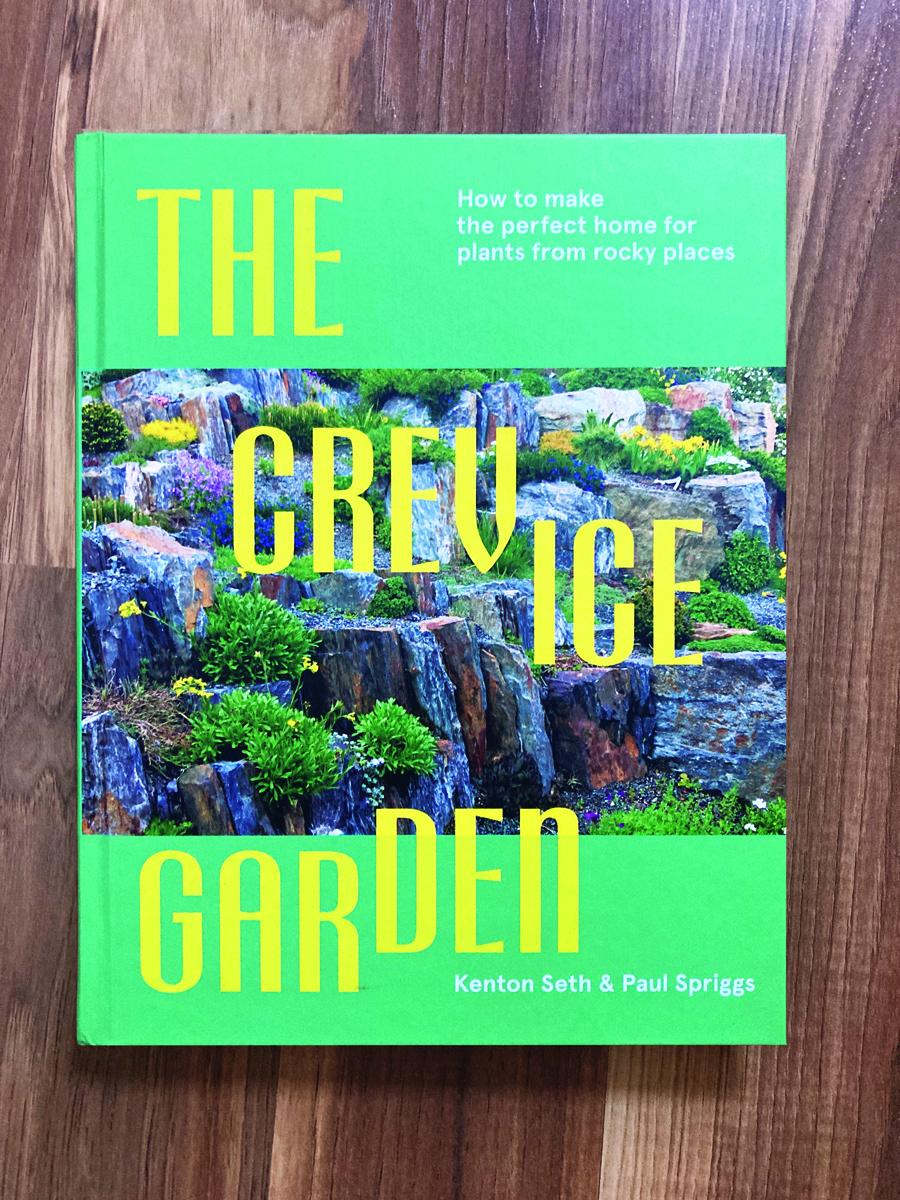
The Crevice Garden: How to make the perfect home for plants from rocky places
Fine Gardening receives a commission for items purchased through links on this site, including Amazon Associates and other affiliate advertising programs.
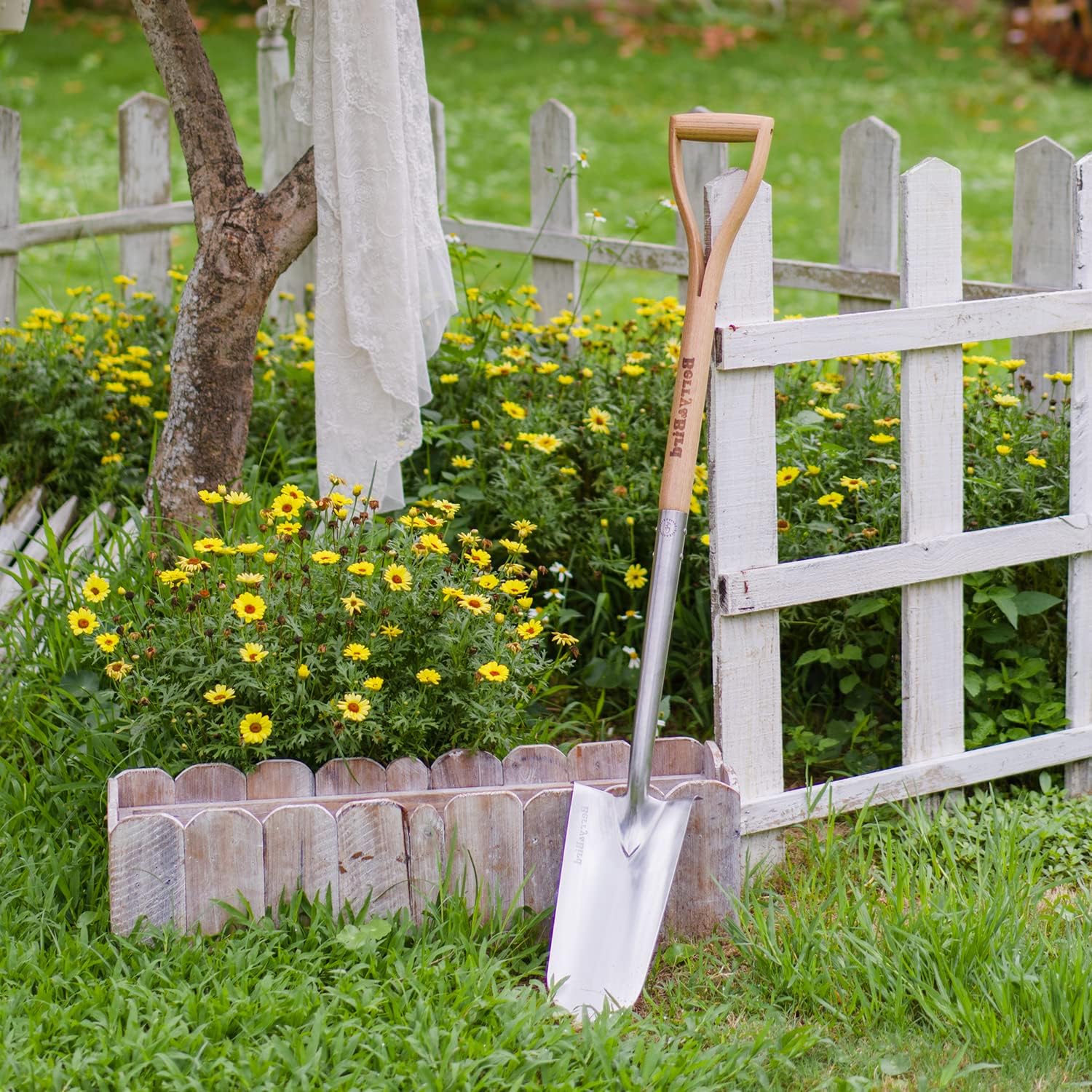
Berry & Bird Rabbiting Spade, Trenching Shovel
Fine Gardening receives a commission for items purchased through links on this site, including Amazon Associates and other affiliate advertising programs.



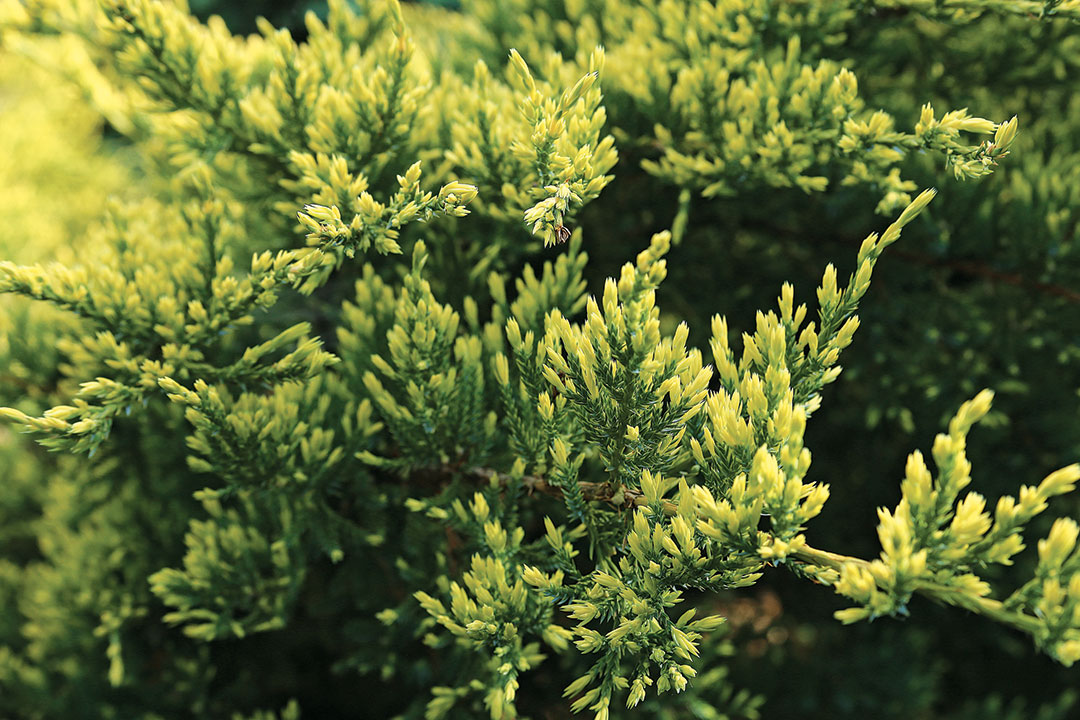


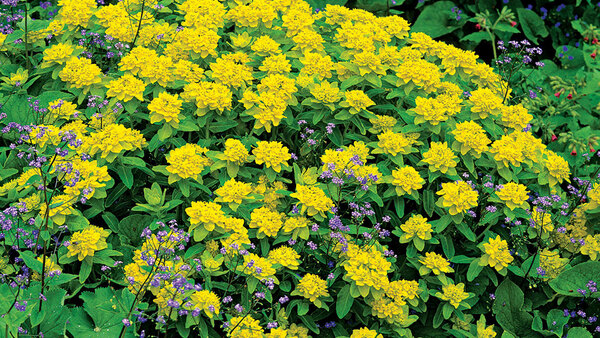

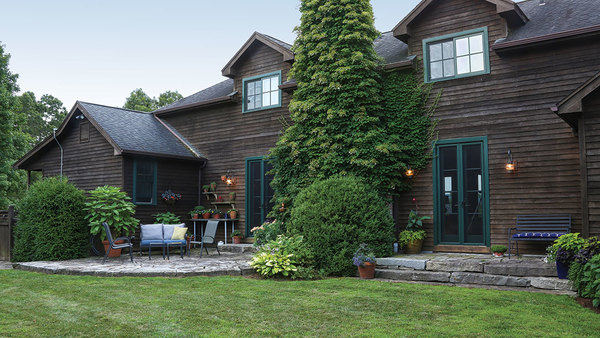

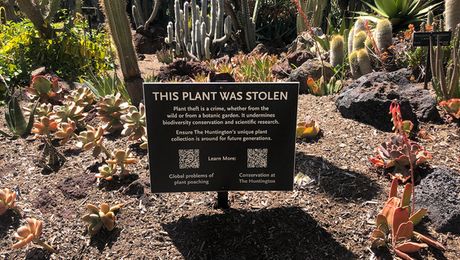
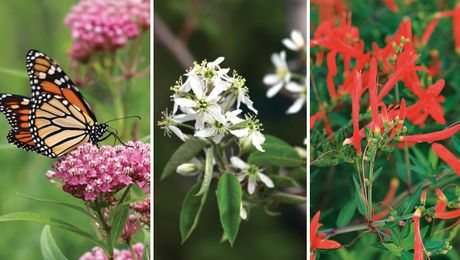










Comments
Log in or create an account to post a comment.
Sign up Log in